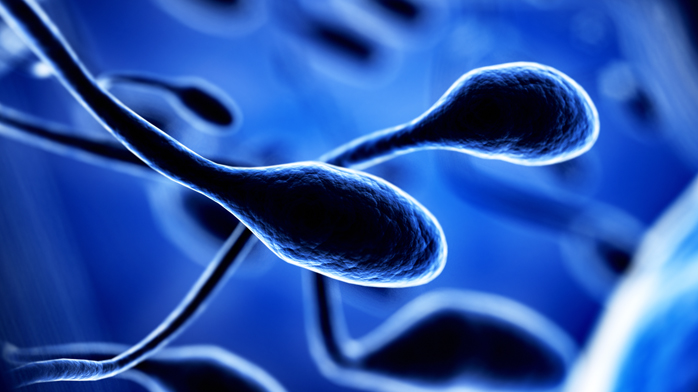Y chromosome microdeletions
Deletions of small fragments of the Y chromosome affect spermatozoa production

How can we help you?
Non-obligation guidance
A Y chromosome microdeletion analysis can be used to check if the Y chromosome is whole or if it has any kind of information loss. It is estimated that around 10% of males with seminogram abnormalities may have an absence of certain regions of the Y chromosome. Identifying if a man has these abnormalities is useful in terms of understanding the cause of the issue and also in order to be able to provide appropriate genetic guidance.
What is it?
A Y chromosome microdeletion analysis consists of studying certain regions of the Y chromosome. The Y chromosome is the one that differentiates between males and females and it contains the necessary information for appropriate sexual differentiation as well as the generation of spermatozoa. The analysis is used to assess the presence of the necessary regions of the Y chromosome for spermatozoa production.
What is it for? What is its purpose?
Certain regions called AZFa, AZFb and AZFc that play a role in spermatozoa production have been identified in the Y chromosome. It has been observed that patients with a low quantity of spermatozoa or a total absence of spermatozoa have losses in one or several of these regions. The analysis determines if those regions exist or not.
It is possible to determine the cause of a low sperm count by analysing Y chromosome microdeletions. Furthermore, if a loss in any region is identified, couples must be given appropriate genetic guidance. The aim is to explain all the implications from a genetics point of view because the abnormality is present in a chromosome and it will be passed on to the males in the next generation.
What does it entail?
The individual’s DNA needs to be obtained in order to perform the analysis. This can be done through a blood or saliva sample. Either of these biological samples can be used to extract DNA. The AZFa, AZFb and AZFc regions are detected using the PCR (polymerase chain reaction) technique. If all the regions are present, the patient does not have any kind of abnormality. An absence of a region, however, means that the patient is a carrier of microdeletions in the Y chromosome.
When is a Y chromosome microdeletion analysis advisable?
This test is of huge importance in patients who have abnormalities in the number of spermatozoa in their seminogram. It is mainly prescribed for patients with oligozoospermia (under 5 million per ml in the sperm count) or azoospermia (a total absence of spermatozoa in ejaculate). These patients can benefit from the analysis because, on the one hand, it helps them to understand the reason for their low sperm count and, on the other, it helps them to take decisions concerning their reproductive future.
What information does the analysis provide?
If a presence of Y chromosome microdeletions is confirmed, it is also important to understand which region has the deletion (AZFa, AZFb or AZFc) or if there is a combination of them. It is very important to identify the region with the deletion because there are different levels of severity in terms of spermatozoa production. In the case of patients with azoospermia (an absence of spermatozoa in ejaculate), it is also key to understanding the likelihood of finding spermatozoa in the testes and, in turn, the chances of having biological offspring. In patients with oligozoospermia or azoospermia, it also provides us with information on the progress of this failure in sperm production.
What is the procedure if Y chromosome microdeletions are identified?
Patients with microdeletions are advised to store sperm in order to preserve their fertility because there is a chance that the failure in sperm production will progress.
Since the abnormality affects a chromosome, patients who have Y chromosome microdeletions need to be given appropriate genetic guidance. An analysis of the patient’s male siblings is advisable in order to find out if they are carriers of the microdeletion or not and if they will also have fertility issues. Furthermore, all sons of patients with Y chromosome microdeletions will inherit the abnormality. Last of all, the future generations of these patients are at an increased risk of suffering from Turner syndrome.
How is the test performed?
You can come to our facilities so that our team can perform a genetic analysis. You can also request the test on our webpage and do it from the comfort of your own home.
You will need to fill in a form with your personal data and select the option you are interested in.
Payment can be made by credit card or by bank transfer. If you choose the latter, our staff will contact you to provide you with our bank details.
Once your request has been received, we will send you a kit for taking the sample to the address that you have provided.